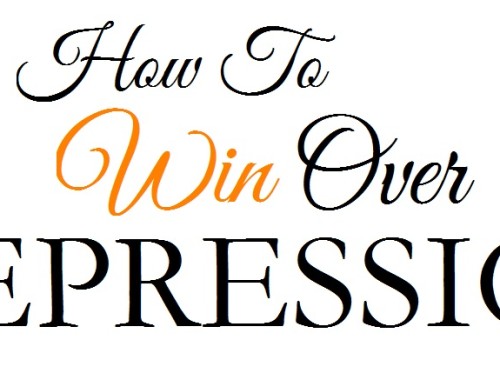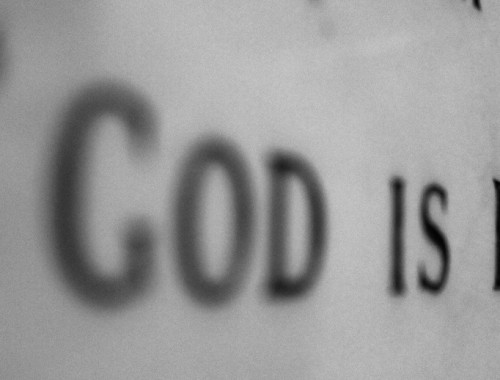
[I originally wrote this for Christianity Today’s her.meneutics after my pitch was accepted, but they have decided not to publish it, so I’ve decided to post it here.]
“What do you mean you’ve never read Anne of Green Gables?”
My friend was staring at me with horrified ten-year-old eyes. She’d had the same reaction when I’d told her I’d never read Little House on the Prairie a few months earlier, but somehow, I could tell that not being on speaking terms with “Anne-with-an-e” was the greater literary crime. Her solution was to loan me the books, and I devoured them. One scene that has been my favorite since then was the chapter where Anne learns to say her prayers. Marilla asks if she knows who God is, and Anne’s response is to recite the catechism– but when Marilla begins to instruct her on the “proper” way of saying a prayer, Anne provides a different approach to Marilla’s emphasis on orthopraxy:
“I’d go out into a great big field all alone or into the deep, deep woods, and I’d look up into the sky–up–up–up–into that lovely blue sky that looks as if there was no end to its blueness. And then I’d just feel a prayer.”
For a long time, my response to this notion of interacting with God, faith, and religion was the same as Marilla’s: I assigned words like sacrilegious or pagan or heathen to this “touchy-feely” approach.
And then I went to graduate school.
Before I become another statistic of one of those good Christian kids that go off to college and become a liberal, I should tell you that I attained both of my degrees from conservative evangelical universities. But yes, I went off to college, and I became a liberal.
However, it depends on your definition of liberal. Theologically, I define myself on the progressive side of conservative. I hold with the regula fidei— the creeds, and the “faith held always, everywhere, and by all.” I believe in the essentials, and I fit inside most Protestant orthodox views. I have serious questions about soteriology, but I’m working through them.
How I’m a liberal has to do with ecclesiology, and what I feel is the nature and purpose of Christ’s body on earth. In a recent theology class I’m taking, we were asked to give our definition of the church, and I wrote down that “the church is a body capable of reaching unification through Christ in order to achieve God’s mission on earth: the Great Commission and social justice through godly love.”
As a teenager, the social justice in my definition would have made me cringe. It certainly makes many modern theologians cringe, too. My generation, because of this movement away from the practiced theology of the last century, is being called the “most theologically illiterate generation ever.” A recent blog post that went viral on why this generation is leaving the church in mass droves is being chalked up to us being “embarrassingly ignorant,” that we’re searching for “warm fuzzies in soup kitchens.” We’re nihilistic, post-modern, and cynical. We’re being told that “moralistic therapeutic deism” is one of the greatest threats Christianity faces today. We’re given the fear-mongering statistic that 70% of us leave church during our college years.
These are familiar accusations to my generation. Familiar, and frustrating. To an extent, many of these concerns are valid. In the earnest search for solutions, however, the response is to confront this generation’s struggles with a battle cry of “more doctrine!” This supposed falling away is seen as a failure on the part of Christian community– the failure to pass on the faith of our fathers to our children. If only we had just taught them better, made sure they understood the creeds and the catechisms and the confessions.
But, when I engage with my friends, my fellow-students, my colleagues, my community, my fellow writers– what I find isn’t a lack of theological literacy. It’s just a different theology– it’s a theology that interacts with us in our week-a-day lives. It’s a theology that we want to mold and shape us and teach us how to become more like Christ. And, when we see Christ, what we see is compassion, love, and mercy– and a person who came to minister, who ate with publicans and sinners, who came to seek out the least of these. Our evangelization, our witnessing, looks different, because it’s one that we choose to act out in missional living. Maybe you won’t find us in church– you’ll find us in the soup kitchens and the food pantries, in the trenches working and building. Having all the right answers, believing all the right things, is not our priority. We want faith and practice to enrich everything we are, and we’re finding God not in the church buildings, but in the streets.
And, frankly, we’re tired. No, we’re exhausted by the seemingly never-ending demands on our political and theological loyalties. We’re bombarded with a hundred different articulations of what it means to be a “true Christian,” and to us, those messages don’t look anything like Jesus. We don’t want to be at war anymore, fighting our parent’s battles. We’re looking around at a world that is starving, and broken, and we see that the Church is becoming a byword for hate. That, more than anything else, saddens us.
So, we’re searching, and in our somewhat blind stumbling, we’re trying to find other ways to be a Christian: missional, sacramental, universal, progressive, paleo-orthodox . . . We are embracing doubt and questions, and we’re comfortable with living in the unknown, in the gray. Saying “I don’t know” is a post-modern statement, but it’s not a statement about meaninglessness, but about honesty and transience. Our searching is leading to us to a deeper understanding of beauty, myth, and story, and we’re engaging with the sublime, the transcendent, the spiritual, in order to escape the banal and mundane, to bring God’s will in heaven down here to earth. Strangely, we’re moving both toward and away from certainty; we may be less sure about abstract theological questions, but we’re becoming positive that loving our neighbor and do unto others as you would have them do unto you is a good place to start.



